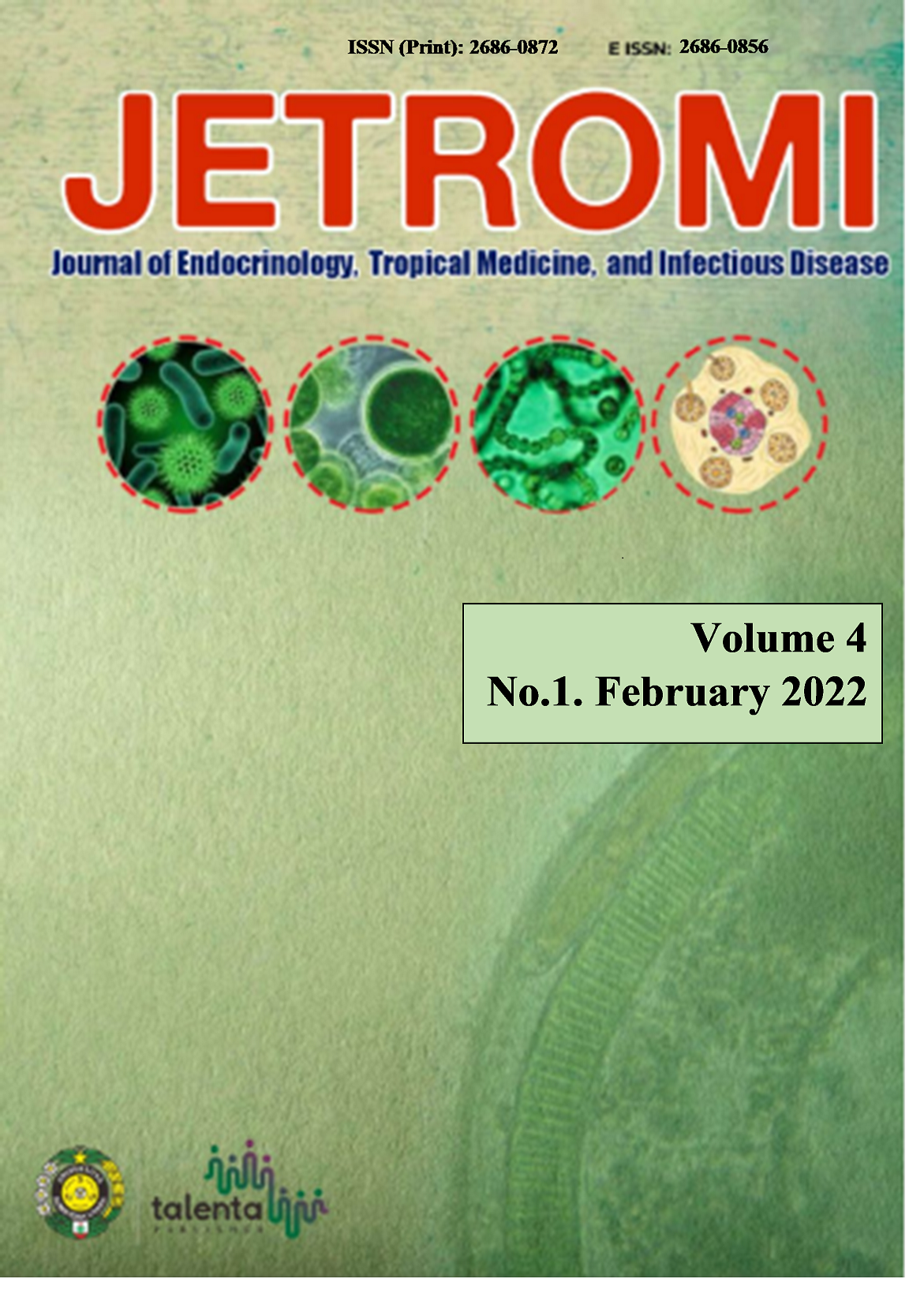The Effect of Lifestyle Modification on Lipid Profile and Body Weight in Obese Subject
DOI:
https://doi.org/10.32734/jetromi.v4i1.8567Keywords:
Body Weight, Lipid Profile, Lifestyle ModificationAbstract
Background. The lifestyle modification (LSM) programs program addresses diet, exercise, stress management, and nutritional depletion using cognitive-behavioral approaches to improve the causes of chronic disease. The purpose of the study is to evaluate the effect before and after three months of LSM on lipid profile and body weight parameters of obese subjects
Method. The participants of age 25-50 years recruited through personal contact consisted of 20 obese subjects who appeared to engage in diet and regular exercise (get at least 150 minutes of exercise a week). The types of physical exercise aerobic (walking, swimming, jogging) were included in the study. The anthropometric measurements and blood sample was taken before and after three months of LSM. Height (m) is measured using a wall-mounted height bar and body weight (kg) is measured using a scale and its value is used in BMI calculations. The serum of profile lipid was determined by enzymatic colorimetric method and sd-LDL examination was performed indirectly in which the ratio of LDL /Apolipoprotein B.                          Â
Result. After 3 months of LSM, there was a significant decrease in serum LDL, ApoB, BMI, WC, and FPG (p < 0.05) in the obese subject. However, no significant difference was observed in TG, HDL, sd-LDL, PPG, and HbA1C (p>0.05).           Â
Conclusion. Lifestyle modification of obese subjects for three months can decrease parameters of body weight and profiles lipids, which means it can prevent cardiovascular diseases.
Downloads
Downloads
Published
Issue
Section
License
Copyright (c) 2022 Journal of Endocrinology, Tropical Medicine, and Infectious Disease (JETROMI)

This work is licensed under a Creative Commons Attribution-NonCommercial-ShareAlike 4.0 International License.
The Authors submitting a manuscript do so on the understanding that if accepted for publication, copyright of the article shall be assigned to Journal of Endocrinology, Tropical Medicine and Infectious Diseases (JETROMI).
Copyright encompasses exclusive rights to reproduce and deliver the article in all form and media. The reproduction of any part of this journal, its storage in databases and its transmission by any form or media, will be allowed only with a written permission from Journal of Endocrinology, Tropical Medicine and Infectious Diseases (JETROMI).








